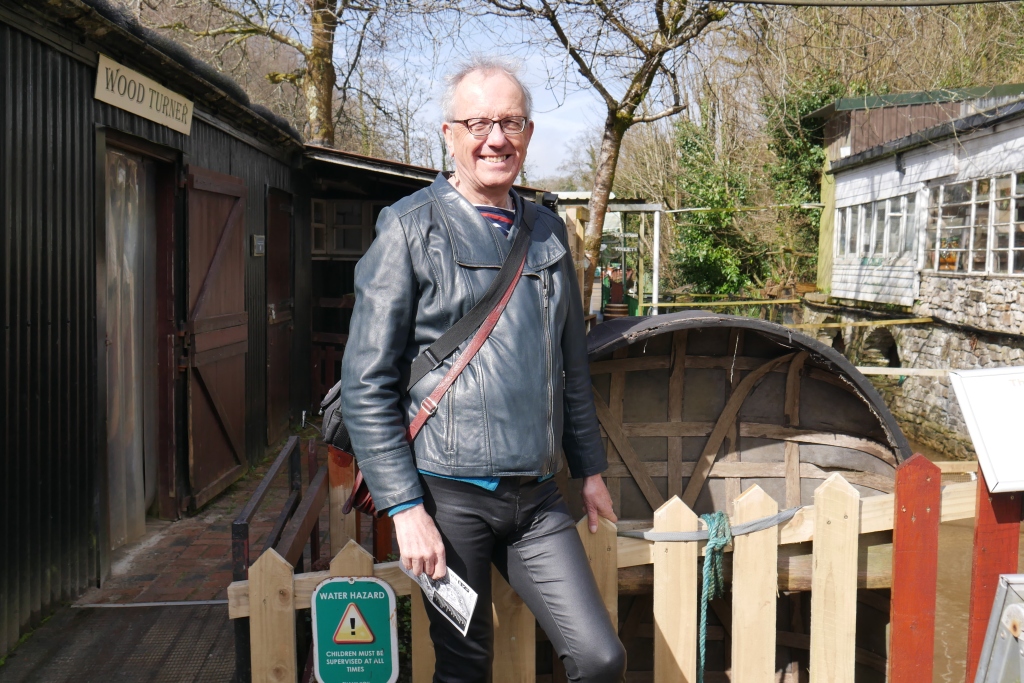Deluge in Dubai. Extreme heat in SE Asia. January to March, the warmest months on record and in the UK. the wettest. Day after we receive more evidence of the effects of global warming. Meanwhile a report in New Scientist says that plans for carbon capture and storage while continuing to burn oil and gas are wildly optimistic with targets impossible to achieve. The only answer really is to stop burning fossil fuels. Yet governments and corporations are announcing slowdowns in their movement to carbon neutral futures. Last year it was Sunak and the Tory government ditching their pledges on climate change. Now it is the Scottish Government. As a result, the deal between the SNP and the Scottish Greens has been broken (the Greens were pushed before they jumped). The SNP is now a minority government so the Scottish Conservatives have moved a motion of no confidence. It seems that a former SNP leadership candidate, Ash Regan, now a member of Salmond’s rebel Alba Party, holds the balance of power. What is she basing the promise of her vote for the SNP on? The climate change policies that have been ditched? No. The state of NHS Scotland? No. It is in fact the Scottish government’s adoption of the Cass report on care of trans-children. What a farce? When did being trans become the most important issue in present-day politics? While there are probably a few hundred trans-kids in Scotland who will be left without sympathetic care or treatment if the Cass report is accepted, there are hundreds of thousands of patients awaiting treatment for all sorts of ailments. Which is the bigger scandal? And all the time the climate crisis grows more deadly. I have no confidence is governments to tackle it.
…………………
This week we attended a live broadcast of the National Theatre/Welsh Millennium Centre production of Nye, the story of Aneurin Bevan. Michael Sheen was in the starring role and as usual was superb, completely taking on the persona of Bevan (not that I know much about the Welsh labour politician). Bevan was Minister of Health in the postwar, Labour Government and in 1948 drove through the formation of the NHS. He faced virulent opposition from the Tories, the BMA and some in his own party. Amongst others, one lesson Nye learned for defeating powerful opposition (initially in his Tredegar home) was, make sure you know and understand the issues, including the rules of engagement, better than your opponents.
This is vital for left and centre politicians today. US Republicans manipulate democratic procedures in state legislatures to undermine the the rights of women and black, gay and trans people. In Spain, right wing minorities are using obscure judicial procedures to harass and hinder members of the elected government and the same is no doubt happening elsewhere. In the UK, Sunak and the Tories have found a new way to undermine the NHS. They are cutting National Insurance rates. On the face of it, this looks like a tax cut putting more cash in workers’ pockets. Except that as NI is a straight percentage of pay, high earners contribute more than low wage staff, while everyone has the same right to health treatment, social care and state pensions. NI payments were supposed to be ring fenced for the NHS, benefits and pensions (I’m not sure it still is). When more people are requiring treatment, more need care at home and people are living longer in retirement, it is illogical to cut the payments unless the aim is to dismantle the welfare state.
This week’s topic for writing group was agents/agency. This was because last week we had a special meeting with a top literary agent. She was charming, answered all our questions and revealed a caring attitude to her stable of 40 authors. I didn’t really learn anything new but had it confirmed that there is about a 2 in 5,000 chance of being taken on by any single agent in one year. After the meeting I wrote the story below, The No.1 Bestseller Literary Agency. It is a satire and may be considered a cynical appraisal of the profession. It was in no way inspired by the character or practices of our guest agent and the character bears no resemblance to her. I have no idea whether my story is true – it just feels like it sometimes.
The No.1 Bestseller Literary Agency
Trudy Hennesy reclined in her contoured, ergonomic, executive chair. She stared at the screen of her smart phone, impatiently tapping the rim with a sharp, glistening red fingernail. Where were the emails from eager publishers; the WhatsApp messages from her fellow literary agents, friend and foe; the tik-toks of keen young readers; or Facebook posts from the senior citizens and their book clubs? There was nothing to point her in the direction of the next big seller, the trend of the moment.
Never slow to clamber onto any wagon with a band or grasp the tails of any coat, Trudy recalled the past successes of the No.1 Bestseller Literary Agency speeding in the wake of the giant cruiseliners of publishing.
Who could forget the rapturous response to Barry Hopper and the Dried Plum Stone, the story of a poor, bullied boy at a decrepit state high school who discovered magic in his lunchbox. Then there were the tears of joy resulting from Midnight, the tale of a young woman’s desire for a werewolf’s love regardless of the scratching claws, sharp teeth, bad breath and thick, stinking fur.
For more adult readers, there was Fifty Flavours of Ice, explicitlyrecounting the erotic pleasures of ice-cream beyond vanilla. Most recently was the huge success in cosy crime of the series of cases solved by The Monday Morning Toddler Club with its cast of exhausted mums solving the crimes of their neighbourhood over a mug of instant coffee and a digestive biscuit.
Now, the well was dry, the tottering virtual slush pile bereft of any inspired, though vaguely plagiarised, shoe-ins for a bestseller. Every day, hundreds of publications joined the overcrowded marketplace, but which was the one, the golden ticket to royalties and profit beyond the dreams of the average author and their agent. That one would be the flag bearer, the one that others would follow. She had to pick it out first so that her authors would be the leaders of the chasing pack. What was it to be? Which mash-up of genres would be the next big thing?
Trudy was disturbed from her maudlin recollections by a tap on her study door.
“The post has come,” her husband said poking his head around the door, “You have a parcel.” He stepped into her holy of holies, placed a package into her arms and withdrew.
Trudy ripped off the brown paper then stopped to stare. It was a long time since she had seen an actual printed manuscript. Usually, they were consigned to the rubbish bin before reaching her hands. Who knew what germs adhered to the paper. Only submissions that negotiated her strict and idiosyncratic guidelines ever earned screen time. This neat bundle however, had evaded all her defences and made it to her lap. Perhaps she might, just might, glance at the title, scan the opening paragraph, read the first page.
An hour later, Trudy was enraptured, carried off into a world that was unfamiliar and original yet revealed to all the senses, populated by a variety of characters that lived, doing things that surprised and excited her. She turned each page, reading every word, exhilarated by every sentence, longing for the next paragraph.
She ignored her husband’s call to lunch (he dared not disturb her again) and it was approaching teatime when she reached the last page. She read the final words, The End, with a feeling of wonder tinged with regret. The story was finished but she felt she wanted to know more. Trudy could not recall when she had last read a novel that gave such pure enjoyment, that hadn’t triggered her critical or pedantic senses, a story which just had to be read.
For moment or two she just sat and reflected, the scenes from the story repeating in her memory. She felt again the emotions the words had generated.
Then she picked up the great pile of single sided, double-spaced, 12 point Times New Roman printed A4 paper and dumped it in the waste bin.
It was no use to her. What publisher would take on such a unique novel, one without any to compare with, in no acknowledged genre. What shelf would bookshops place it on? The work of which famous authors could the marketing people say it surpassed? Sadly, Trudy resumed her search for the next guaranteed, sure-fire, money-spinner.
…………………………..



